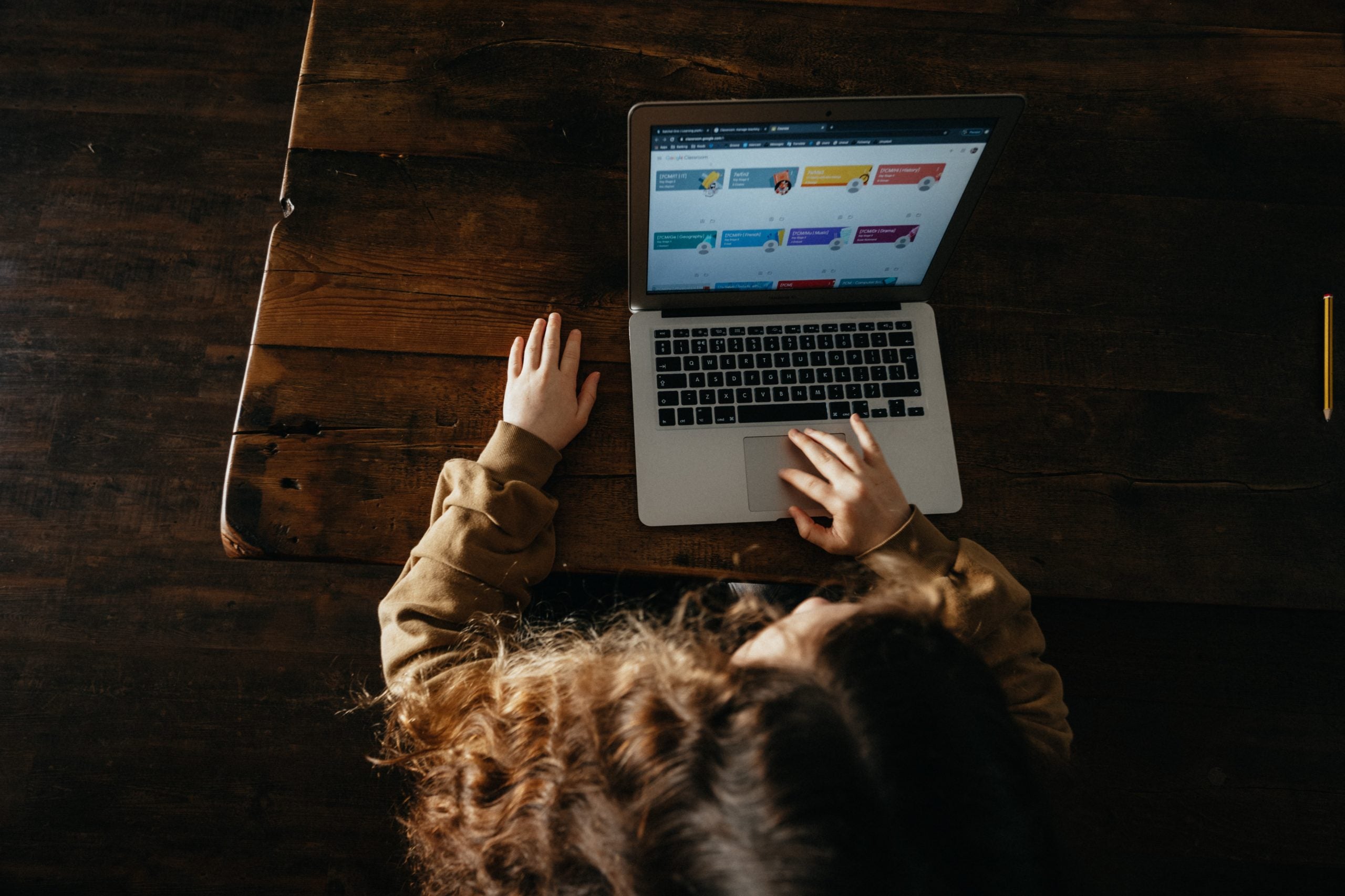Tips for Teacher-Parents During a Pandemic: Use Tools and Forget Being Perfect
With the closing of public schools across the country and the world, millions of parents must now supplement their children’s education while dealing with pandemic-induced stressors, including working from home. Department of Psychology professors and child development researchers Sandra Calvert and Rebecca Ryan offer crucial tips to parents.
1. Think of Media as an Ally
“One criticism of media is that its use results in a decrease in interactions with people, but now it is a way to actually connect with others, which presents some innovative opportunities,” says Calvert, who researches the impact of children’s digital media on children’s learning and well-being.
“There has been an underlying argument that media is bad for kids, but at this point, we are scrambling to navigate a world that we have not encountered before, and that requires that we utilize different methods and resources to cope,” she adds. “Media can provide avenues for education, create a safe space and allow you to connect with others when it would otherwise not be possible.”
2. Quality and Quantity
“Children’s exposure to screen time in general is like a diet – you have quantity and quality,” says Calvert. She stresses that parents should be concerned more about the quality of children’s experiences – what children are doing with screens – and less about the quantity of exposure -the amount of time spent in front of them, particularly during this pandemic.
3. Forget Being Perfect
The most important advice from Calvert and Ryan is to go easy on yourself as a parent and embrace the idea that you may not complete every task in any given day.
“You have to forget the idea of being perfect,” says Calvert. “Parents are dealing with their own stressors during this time, and it is important to take care of yourself. It’s like being in an airplane when the oxygen masks drop – in order to help your kids, you have to put your oxygen mask on first.”
Calvert also suggests alleviating anxiety by taking breaks from the news, as that creates a negative atmosphere for both parents and children.
“Children hear media in the background, even if it is not intended for them. Background media can be disruptive to children’s well-being,” she explains.
“Kids can sense when their parents are stressed,” says Ryan, Provost’s Distinguished Associate Professor. “In this time of uncertainty, it is of course important to stay informed, but not at the cost of your mental health.”
4. Make Sure Your Kids Stay Connected
Ryan says connecting with other people is incredibly important for everyone and is particularly important for children who are learning and developing social skills.
Technology, such as Skype, FaceTime, and Zoom, allows them to practice physical distancing while maintaining healthy, frequent social relationships.
“These kinds of technologies also connect children to family members that they cannot see in person right now, such as their grandparents,” Calvert adds.
“Take time to talk directly to your children even when you are busy,” she adds. “If your child wants a snack, for example, give them eye contact and say that you are working right now and will do it in a few minutes. Remember that you are the most important person in their lives, and they need to feel connected to you.”
5. Use Educational Apps
Calvert notes that studies, including her own, have shown that children learn better with characters that they form emotional relationships with and think of as trusted friends, particularly when children interact with them.
She advises that educational apps should have small age bands, such as 2-3, 5-8 and 8-12, since children’s learning varies according to their developmental level.
“DC public schools have done a great job of using educational apps for instructional continuity,” Ryan notes. “They have integrated apps like Raz-Kids to help with reading and other subjects so that he can be both learning and engaged, which allows me to focus on my work.”
Calvert suggests exergames such as Wii as a supplement for in-person physical education in schools. Be sure you have enough room so that you don’t bump into one another!
6. Consult With Teachers
Ryan suggests that parents speak to teachers about their child’s individual learning level to best gauge what apps are best for them.
But these individualized apps are often not enough. Calvert and Ryan stress the importance of parents using these apps with their children, especially with kids under the age of 10, to create the most impactful learning environment.
-by Shelby Roller (G’19)
